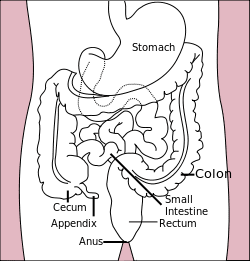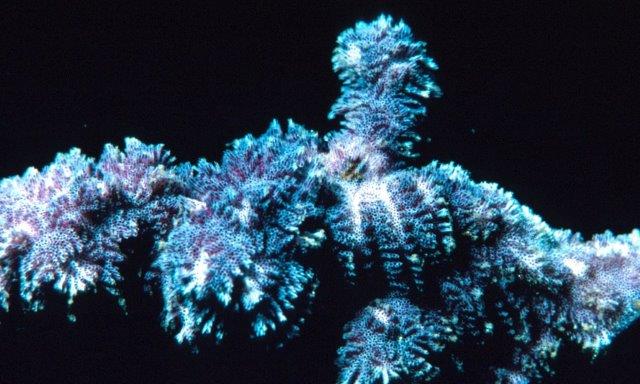
Tiny worms could be key to solving Type 1 diabetes and other autoimmune ailments
There is a new weapon in the fight against autoimmune diseases such as Type 1 diabetes, rheumatoid arthritis, Crohn’s disease and lupus, the common trait of which is an immune system that attacks its own organs and tissues.
William Gause, an immunologist at Rutgers New Jersey Medical School, is among those leading the charge against these diseases by studying how the human body reacts to worms. The worms Gause studies, or helminths as biologists call them, are small parasites that live in human intestines, especially in the developing world.
According to an article in Nature Reviews Immunology by Gause and colleagues from the National Institutes of Health and the University of Edinburgh, the worms’ presence through millennia of human evolution likely has led to an immune response called type 2 immunity. This includes immune regulatory pathways that help control the inflammation that can contribute to autoimmune diseases.
The immune reaction, the researchers say, appears to have developed as a way to rapidly repair wounds caused by these invaders as they move through the body. In fact, components of the type 2 immune response may someday be used to enhance the wound healing process. Additionally, this response triggers regulatory networks that block harmful immune responses, or inflammation, that otherwise would exacerbate the tissue injury.
“What we would like to do now is harness components of the type 2 immune response to target the control of harmful inflammation that can lead to autoimmune diseases like diabetes and inflammatory bowel disease,” Gause says. He adds that inflammatory responses also have been linked to other diseases, including cardiovascular disease and metabolic disorders, and even to allergic reactions and fibrosis that may result when titanium shavings that flake away from artificial joints settle in the body. “Finding new ways to stimulate these regulatory components of the type 2 immune response may provide us with a new set of tools to target the control of harmful inflammatory responses now associated with this wide array of different diseases.”
For now, live helminths or helminth byproducts may be introduced into the body on a short-term basis to train compromised immune systems. A 2012 study by a Gause-led team found that the introduction of helminths for two weeks caused the immune systems of mice to produce cytokines, or signaling molecules, which gave them lasting protection against Type 1 diabetes.
That finding mirrors human experience in the developing world where helminth infection is endemic, but the incidence of autoimmune diseases such as Type 1 diabetes is extremely low.
“There is a growing body of evidence to support the hygiene hypothesis, which suggests that decreased exposure to microbes and helminths in industrialized countries may impair the development of immune regulatory networks that would otherwise control harmful inflammatory responses,” Gause says.
The Latest Bing News on:
Parasites as Potential Disease Fighters
- Researchers discovery family of natural compounds that selectively kill parasiteson May 8, 2024 at 11:25 am
An international team led by researchers at the University of Toronto has found a family of natural compounds with potential as new and more effective treatments for parasitic worms. The compounds ...
- Big data helps determine what drives disease riskon May 8, 2024 at 10:21 am
Working with nearly 3,000 observations across almost 1,500 host-parasite combinations, researchers at Notre Dame University have found that biodiversity loss, chemical pollution, introduced species, ...
- Environmental Changes Are Fueling Human, Animal and Plant Diseases, Study Findson May 8, 2024 at 8:31 am
Biodiversity loss, global warming, pollution and the spread of invasive species are making infectious diseases more dangerous to organisms around the world.
- Paper Money and Coins as Potential Vectors of Transmissible Diseaseon May 7, 2024 at 5:00 pm
Various bacteria, yeasts, fungi, cysts and ova of intestinal parasites have been isolated ... Banknotes can serve as a potential source of pathogens, and paper currency recovered from hospitals ...
- The Therapeutic Potential of Melatonin: A Review of the Scienceon May 6, 2024 at 4:59 pm
Some studies have shown that melatonin may also be effective in breast cancer, fibrocystic breast diseases ... antioxidant role of melatonin may be of potential use for conditions in which ...
- Diseases articles from across Nature Portfolioon May 6, 2024 at 4:59 pm
Diseases are abnormal conditions that have ... Now, a study, aiming to redress this imbalance, shows the potential ecotoxicological effects of treating cattle with insecticide to control ...
- Lung Disease Newson May 6, 2024 at 4:59 pm
12, 2024 — A recent study uncovers a pathway used during normal wound healing that has the potential to reverse ... that causes allergic respiratory diseases, such as asthma and allergic ...
- Insights Into Malaria Parasites Sexual Development Reveals Opportunities To Prevent Disease Spreadon May 2, 2024 at 5:00 pm
The Atlas provides information for researchers worldwide to investigate and generate tools to track the disease. The novel insights accessible through the Malaria Cell Atlas can also help identify new ...
- Diseases and Conditions Newson April 30, 2024 at 5:00 pm
May 1, 2024 — An experimental influenza vaccine carrying more than 80,000 variations of hemagglutinin antigens caused the immune system of mice and ferrets to respond more strongly to less ...
- Common Respiratory Diseaseson April 11, 2024 at 5:00 pm
There are many types of respiratory diseases, such as COPD, asthma, and obstructive sleep apnea. Smoking and exposure to certain substances are common risk factors. Respiratory diseases are ...
The Latest Google Headlines on:
Parasites as Potential Disease Fighters
[google_news title=”” keyword=”Parasites as Potential Disease Fighters” num_posts=”10″ blurb_length=”0″ show_thumb=”left”]
The Latest Bing News on:
Helminths
- Researchers discovery family of natural compounds that selectively kill parasiteson May 8, 2024 at 11:25 am
An international team led by researchers at the University of Toronto has found a family of natural compounds with potential as new and more effective treatments for parasitic worms. The compounds ...
- Food Safety Newson May 8, 2024 at 5:00 am
It’s unknown if humans can become infected with the Avian Flu virus from unpasteurized, raw milk, but we’ve certainly set up the experiment to find out. That’s because several state ...
- EU Commission opens call in foodborne labs reorganizationon May 1, 2024 at 5:00 pm
The call for applications covers three EURLs. The first is an EURL for food and waterborne bacteria; the second is for food, water, and vector-borne helminths and protozoa; and the third is for food ...
- The potential role of habitat on intestinal helminths of mountain hares, Lepus timiduson April 11, 2024 at 5:00 pm
Department of Zoology, University of Aberdeen, Tillydrone Avenue, Aberdeen, AB9 2TN, UK The Macaulay Land Use Research Institute, Craigiebuckler, Aberdeen, AB9 2QJ ...
- Controlling Intestinal Helminths while Eliminating Lymphatic Filariasison April 9, 2024 at 11:16 pm
Looking for an examination copy? If you are interested in the title for your course we can consider offering an examination copy. To register your interest please contact [email protected] ...
- What Are Parasites?on December 19, 2023 at 7:48 pm
There are three main types of parasites that infect humans: protozoa, helminths, and ectoparasites. Each type is unique in the ways it spreads, multiplies, and affects your body. Protozoa are ...
- Uninformative medical tests: Which ones are not worth your moneyon November 30, 2023 at 11:03 am
Which of them are uninformative, explains family doctor and pediatrician Diana Protokovilo on Instagram. Blood test for various helminths: The most common is the IgG blood test, which can show that ...
- Animal Production and Health Laboratoryon June 13, 2022 at 1:24 am
Red Masai sheep resistant to helminths (Photo: ILRI) (b) Develop and transfer to Member States tools for the conservation and management of animal genetic resources. Examples are: Radiation Hybrid for ...
- Disease Ecologyon December 11, 2021 at 2:43 am
In contrast, macroparasites (mostly parasitic worms called helminths and parasitic arthropods such as lice) are larger, longer-lived, and rarely complete their life cycle within a single host.
- Localised Evidence and Decision-making (LEAD)on August 6, 2020 at 8:26 am
The LEAD Project focuses on the transmission and control of schistosomiasis and soil-transmitted helminths around the African Great Lakes Region, with fieldwork in epidemiologically-relevant areas of ...
The Latest Google Headlines on:
Helminths
[google_news title=”” keyword=”helminths” num_posts=”10″ blurb_length=”0″ show_thumb=”left”]









